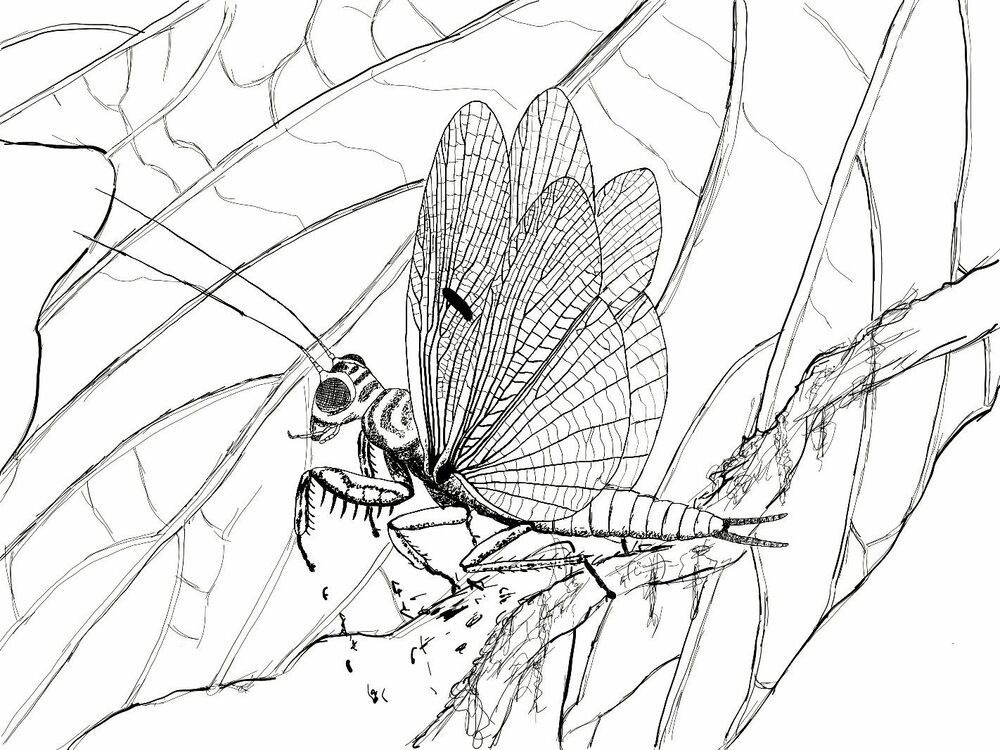A McGill-led research team has identified a new species of praying mantis thanks to imprints of its fossilized wings. It lived in Labrador, in the Canadian Subarctic around 100 million years ago, during the time of the dinosaurs, in the Late Cretaceous period. The researchers believe that the fossils of the new genus and species, Labradormantis guilbaulti, helps to establish evolutionary relationships between previously known species and advances the scientific understanding of the evolution of the most ‘primitive’ modern praying mantises. The unusual find, described in a recently published study in Systematic Entomology, also sheds light on wing evolution among mantises and their relatives more generally.
Digging through mountains of rubble
The research team, which included members from the Muséum national d’Histoire naturelle in Paris, and the Musée de paléontologie et de l’évolution in Montreal, found the specimens during fieldwork at an abandoned iron mine located in Labrador, near Schefferville (Quebec).
